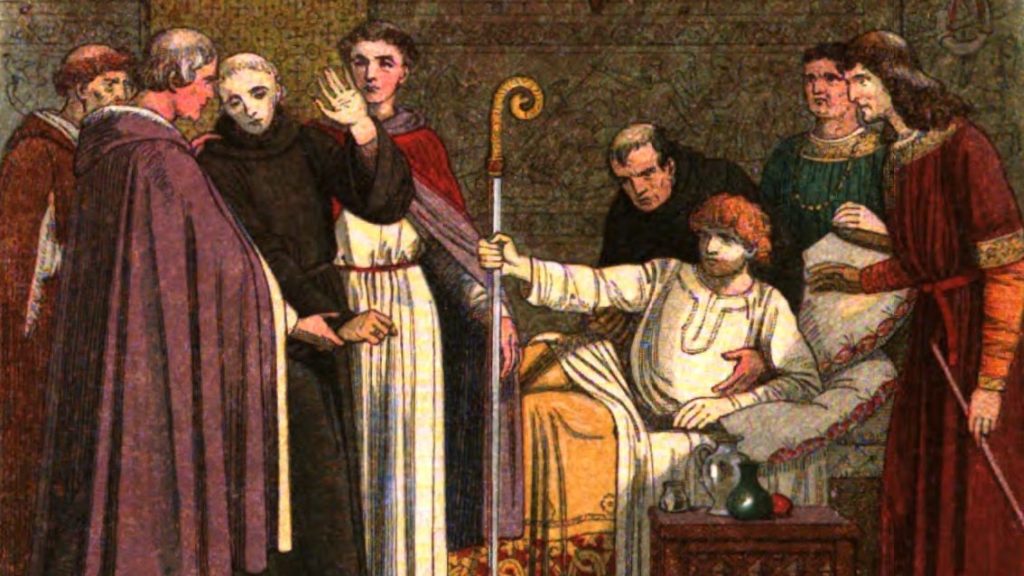St. Anselm was born in Aosta, part of present-day Italy, around 1033. His father was not a particularly moral role model, but his mother was extremely devout, and sent Anselm to be educated at a school run by Benedictine monks.
While he was at school, Anselm felt called to religious life, and had a dream in which he talked to God about his calling. But his father prevented him from joining the Benedictines when Anselm was 15. After this disappointment, Anselm was extremely ill, and lost his mother.
Tired of his father’s mistreatment, Anselm left home and wandered through France and Italy for three years. In Normandy, he met the Benedictine prior Lanfranc of Pavia, and became his disciple. Lanfranc recognized Anselm’s gifts, and encouraged him to pursue his vocation.
Anselm was ordained a priest in the Benedictine order at 27, and succeeded Lanfranc as prior in 1063, when Lanfranc was called to be the abbot of another monastery. In 1079, Anselm became abbot of his own monastery.
Lanfranc was appointed the archbishop of Canterbury, and asked Anselm to come help him. After Lanfranc’s death in the late 1080s, the English Church went through a difficult period. King William Rufus refused to allow the appointment of another archbishop, and Anselm had gone back to his monastery, refusing to return to England.
But in 1092, he was persuaded to go to England, and the king allowed Anselm to be appointed archbishop. Although Anselm was very reluctant to become archbishop, he eventually accepted the appointment. For three years, in the early 12th century, Anselm insisted that the Church be allowed to self-govern in England, which led to his exile. He continued his fight, and returned to his archdiocese in 1106.
In his last years, Anselm worked to reform the Church and continued his theological investigations. He died in 1109.
Pope Clement XI named St. Anselm a Doctor of the Church in 1720. He is best known for his writings on Christ’s atonement and the existence of God.

